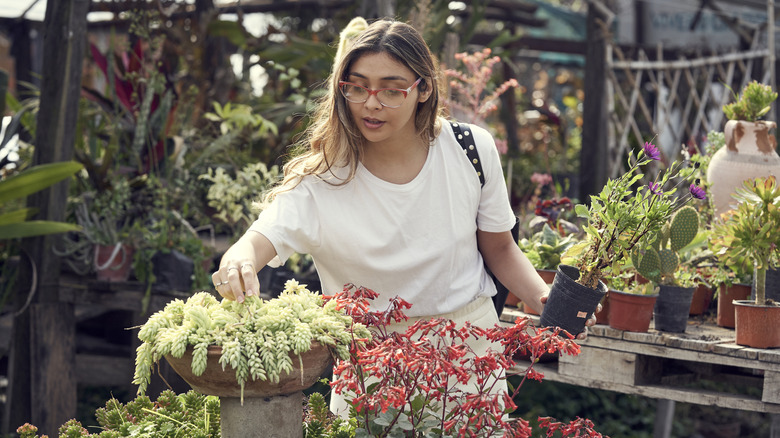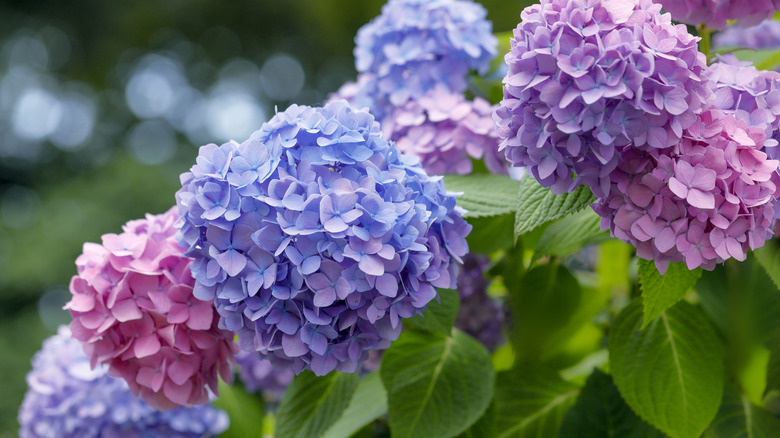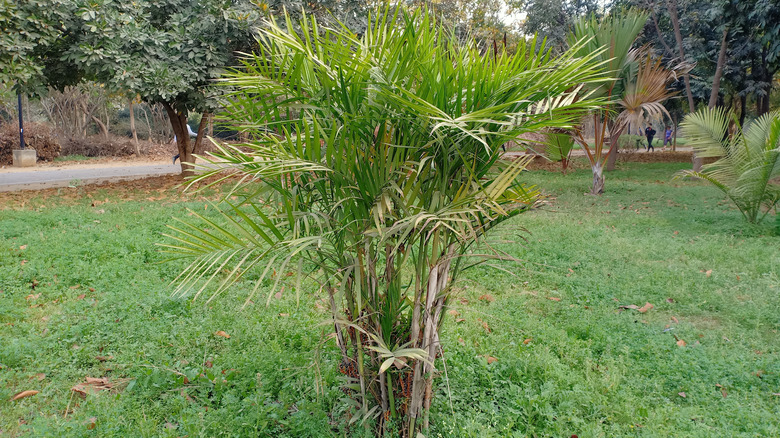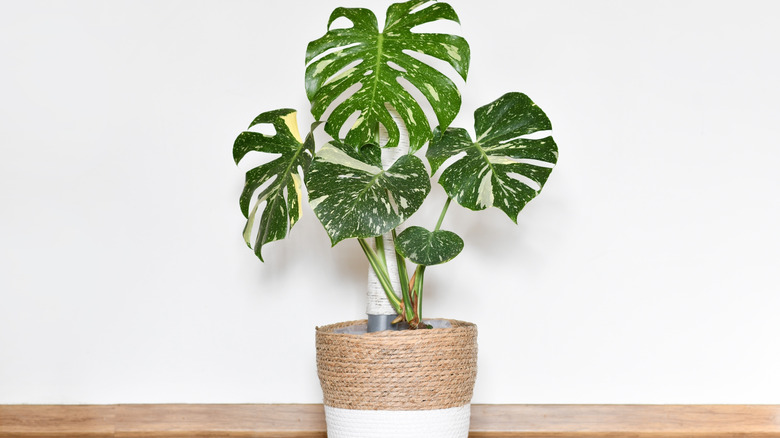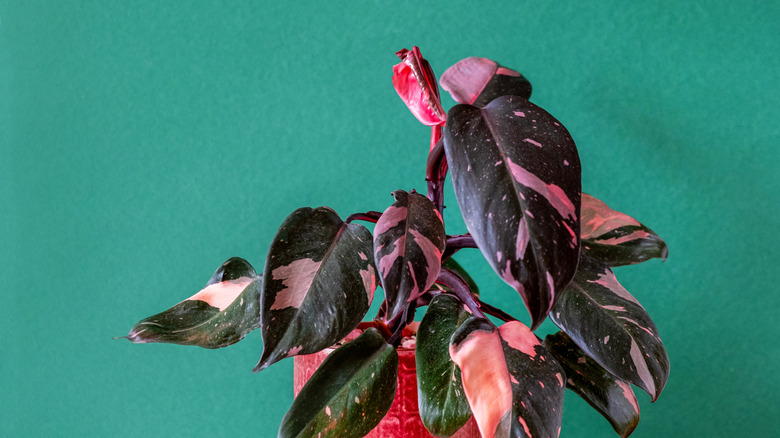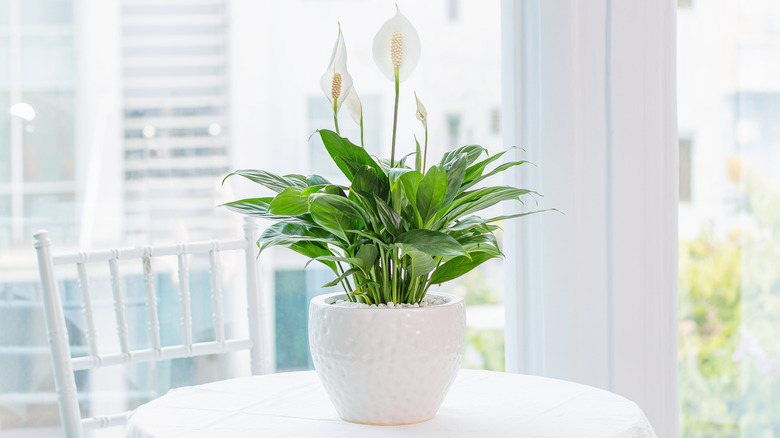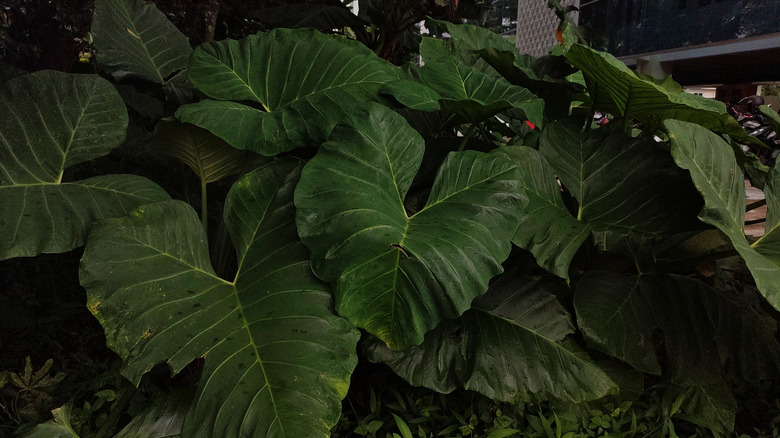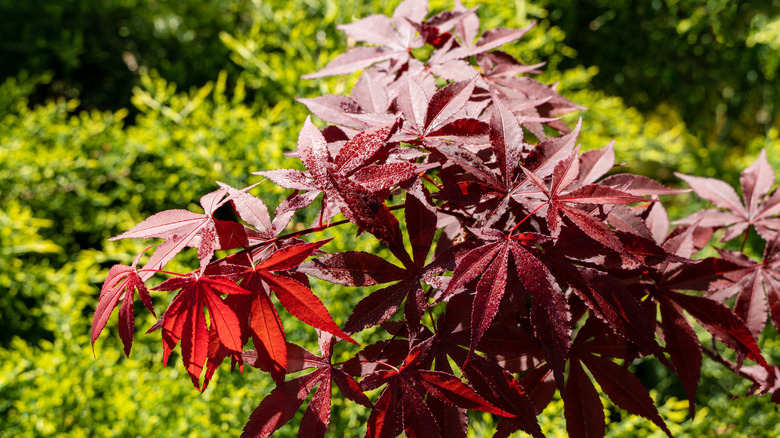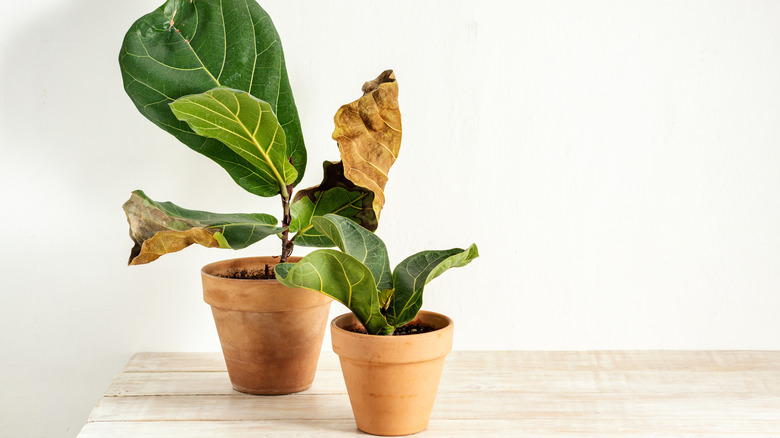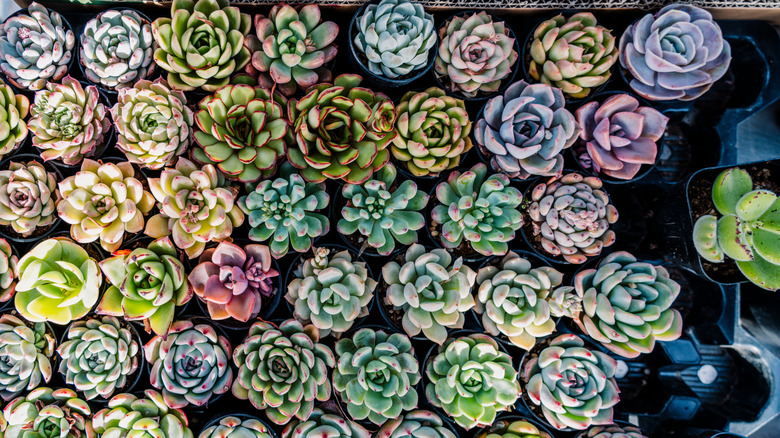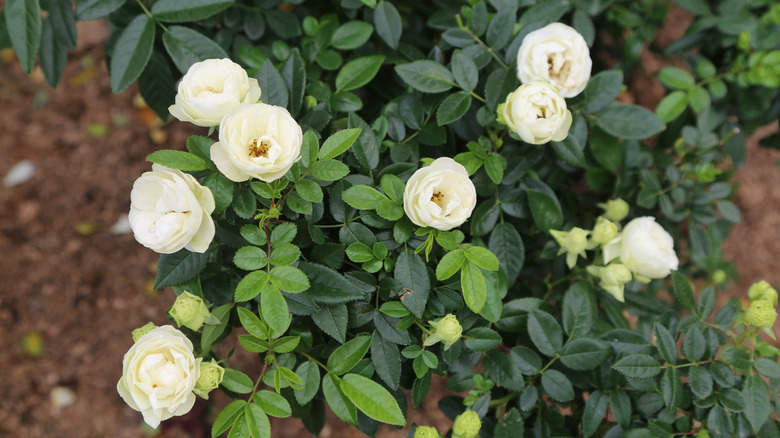10 Costco Plants You Might Want To Skip In Your Garden
It's no secret that Costco's lawn and garden section is home to hidden gems and discounted essentials. From stunning patio furniture to lush, live house plants, Costco has home and garden deals to watch for in spring and summer. One thing the bulk chain is known for is its vast plant selection. Shoppers with green thumbs can lose themselves in aisles stocked with seeds, bulbs, live potted plants, and small trees.
However, while some Costco garden items are well worth your money, others may turn out to be a headache or even pose hidden risks. Plants can bring vivid splashes of color and stunning foliage to your yard, but they can also attract unwanted pests or become a danger when ingested. Choosing the right plant for you is critical when growing your own at-home oasis, and for some shoppers, certain varieties of plants are best left on the shelf.
Whether you're an avid gardener looking for the next addition to your garden beds or are just starting out with your first house plant, Costco has plenty of options to choose from, some of which you may want to avoid. Luckily, there are plenty of alternatives that may be the perfect fit for your home. Here are ten plants you might want to avoid during your next Costco trip, and things to take into consideration if you do decide to add them to your cart.
Hydrangea shrubs are sensitive to heat
While hydrangea's (Hydrangea) clusters of delicate petals can add sophistication to your garden, they can also heighten your allergies. Hydrangeas large flowers produce a lot of pollen, so they might not be a good match for individuals who are sensitive to it or have seasonal allergies. Hydrangeas can also be picky about growing conditions, and are not considered drought or heat tolerant. If you live in a hotter or drier part of the country, you might want to opt for more resilient flower varieties this summer, like lavender (Lavandula) or meadow sage (Salvia pratensis).
Cat palm trees are cheaper at competing stores
The cat palm (Chamaedorea cataractarum) is revered for its air purifying abilities and easy-going care, but Costco may not the best store to pick one up at. You can pick up a set of two cat palm trees for $79.99 at Costco, or about $40 a plant. However, the retail giant's competitor, Home Depot, sells the same plant variety for $29.28 a plant, making it the more affordable option. The cat palm from Home Depot also has a noticeably better rating of 4.5 out of 5 stars compared to Costco's 3-star rating.
Thai constellations can be toxic and high maintenance
Monsteras are a popular choice with plant lovers, but you might want to think twice before picking up a Thai constellation monstera (Monstera deliciosa) from Costco. Thai constellations require a lot of love and care and are considered finicky. They're very sensitive to light and water, and could be a high maintenance house plant to avoid if you live a busy life. Another concern with Thai constellations is they're highly toxic if ingested. Costco's website even warns that the plant is not for human or animal consumption.
Pink princess plants require royal treatment
The vivid pink and green leaves of the famous pink princess plant (Philodendron erubescens) prove that a house plant can double as a statement piece. While this unique varietal is stunning, reviews written on the Costco website suggest this plant doesn't travel well. Priced at $29.99, Costco's 5-inch live pink princess plant is rated 2.5 out of 5 stars in customer satisfaction. Several one-star reviewers reported that their plant arrived damaged, infested with pests, or in poor condition. Pink princess plants also are known to be expensive and a little high maintenance.
Peace lilies can attract unwanted visitors
The peace lily (Spathiphyllum) is another flower you might want to avoid if you have pets or children. This elegant flower's leaves and stems contain small crystals that cause immediate irritation to the mouth, nose, and skin of both humans and animals. According to the National Capital Poison Center, "The peace lily is one of the most common household plants Poison Control is called about." These plants are also known to attract pests and are prone to infestations. The plant's sap can attract aphids, and its large leaves make a comfortable home for mealybugs.
Elephant ear plants can overpower a garden
Elephant ear (Colocasia esculenta) is another plant you might want to reconsider on your next Costco visit, particularly if you have a smaller yard or are gardening in limited space. Elephant ears get their name from their large, expansive foliage, but they can also easily overpower a garden if not regularly pruned. Elephant ear's leaves can overtake small spaces, blocking smaller plants from getting adequate sunlight. They also shed leaves a lot, and their stems can buckle under their own weight, so you have to take extra steps to keep them looking nice.
Japanese maple trees cost a pretty penny
Japanese Maple 'Bloodgood' (Acer palmatum) trees boast brilliant red leaves and lush foliage, but they can also be an investment. Japanese maples are one of the more expensive tree varietals, and a set of two costs $189.99 at Costco. Japanese maples are notoriously hard to establish, so ordering them online before you see the tree's quality might not be the best idea for everyone. The Costco trees are only rated 3.2 out of 5 stars, with some buyers reporting the trees arrived in poor condition with little hope of survival.
Fiddle leaf figs are prone to fungus
The fiddle leaf fig (Ficus lyrata) is another popular plant you can find at Costco, but they can be a little high maintenance. Fiddle leaf fig plants are notoriously prone to fungal infections, which can leave their foliage looking droopy and discolored. They also need decent amounts of humidity and frequent pruning. Fiddle leaf figs can also be picky about water and light conditions, but even if their environment is perfect, they still grow at a slow rate. The plants require a lot of patience and attention in order to thrive.
Succulents aren't always best bought in bulk
You can purchase a twelve pack of succulents from Costco for $56.99, but sometimes, less is more. When you purchase succulents in large quantities, it can be difficult to ensure that every single one is a quality plant. The pack comes assorted, so it could be extra work to identify the different succulent varieties and their individual needs. Small succulents are relatively inexpensive, and buying them in bulk won't necessarily guarantee you a better deal. You can buy a single succulent for around the same price of Costco's $4.75 a plant.
Costco's roses may not travel well
Costco's burgundy and pink iceberg roses (Floribunda Rose) look beautiful online, but some buyers shared that the product didn't live up to their pictures. The roses from Costco have a low rating of just 2 out of 5 stars. Reviewers report that the plant arrived damaged or dead, and didn't cope well with shipping conditions. Roses are more difficult to ship than other, hardier plants, so it might be best to just pick up a rose bush in person.
